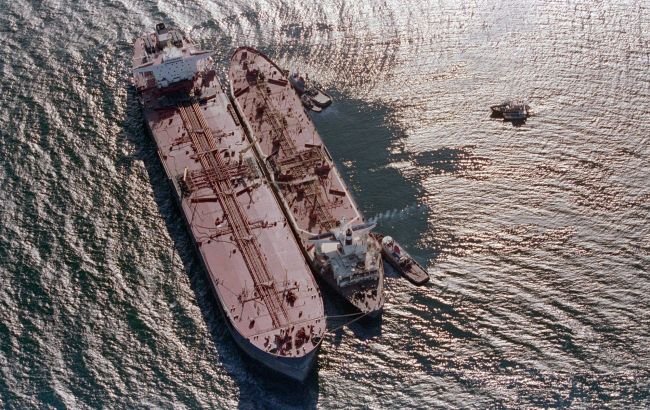Russia registers oil tankers under Gabon flags to evade sanctions, Bloomberg
 Photo: Russia registers tankers under Gabon flags (Getty Images)
Photo: Russia registers tankers under Gabon flags (Getty Images)
The U.S. is increasing sanctions pressure on Russian oil carriers, so the Kremlin is looking for new ways to hide its "shadow fleet" from restrictions, Bloomberg.
It is noted that the number of ships flying the flag of the African country increased fivefold last month, compared with the monthly average for 2023.
This means that at the end of January, there were more than 100 "shadow fleet" vessels flying the Gabonese flag compared to 20 years earlier.
"The Gabon flag registry started to gain popularity as a flag of convenience, offering stakeholders an easy and cheap haven," said Ami Daniel, chief executive officer and co-founder of Windward AI.
According to him, this move is aimed at avoiding the attention of regulatory authorities.
U.S. strengthening control over sanctions against Russia
In recent months, the U.S. and its allies have tightened price caps on Russian oil exports, targeting traders and firms that help move oil above the price ceiling.
Regulators are also stepping up scrutiny of several countries whose ship registries are commonly associated with illegal activity, Daniel said.
"Flags like Liberia, St. Kitts and Nevis and the like have been heavily targeted by regulators - making them less attractive to bad actors," he said.
In the fourth quarter of 2023, the top three countries with the largest flag for "shadow fleet" ships included Panama, Liberia, and Russia.
Russia actively hides its tankers
The report noted that about 50 vessels that received the Gabonese flag last month lost their Liberian and Panamanian flags and belonged to companies based in Russia. All vessels must be registered with the flag state, which then enforces international maritime regulations under UN law.
Characterized by opaque ownership and the use of deceptive methods such as disabling surveillance systems, the "Shadow Fleet" expanded rapidly following Russia's 2022 invasion of Ukraine.
"U.S. restrictions on Russian and Iranian oil, as well as previous ones on Venezuelan cargoes, have created a booming trade for these old vessels operating outside of western oversight," Bloomberg writes.
Strengthening of sanctions
The Western sanctions led to the fact that half of Russian exports of oil and petroleum products went to China in 2023, while India's share increased to 40% in two years. Europe's share of oil exports from Russia fell tenfold to about 4-5% from about 40-45%.
Oil flows from Russia have faced problems after US sanctions against traders and shipping companies tightened. The signs came just weeks after the US Treasury Department imposed the most extensive sanctions against Russian oil traders and state shipping company Sovcomflot since the start of the war against Ukraine.
Recently, the U.S. introduced new sanctions for the transportation of Russian oil. Almost 20 tankers came under restrictions.

